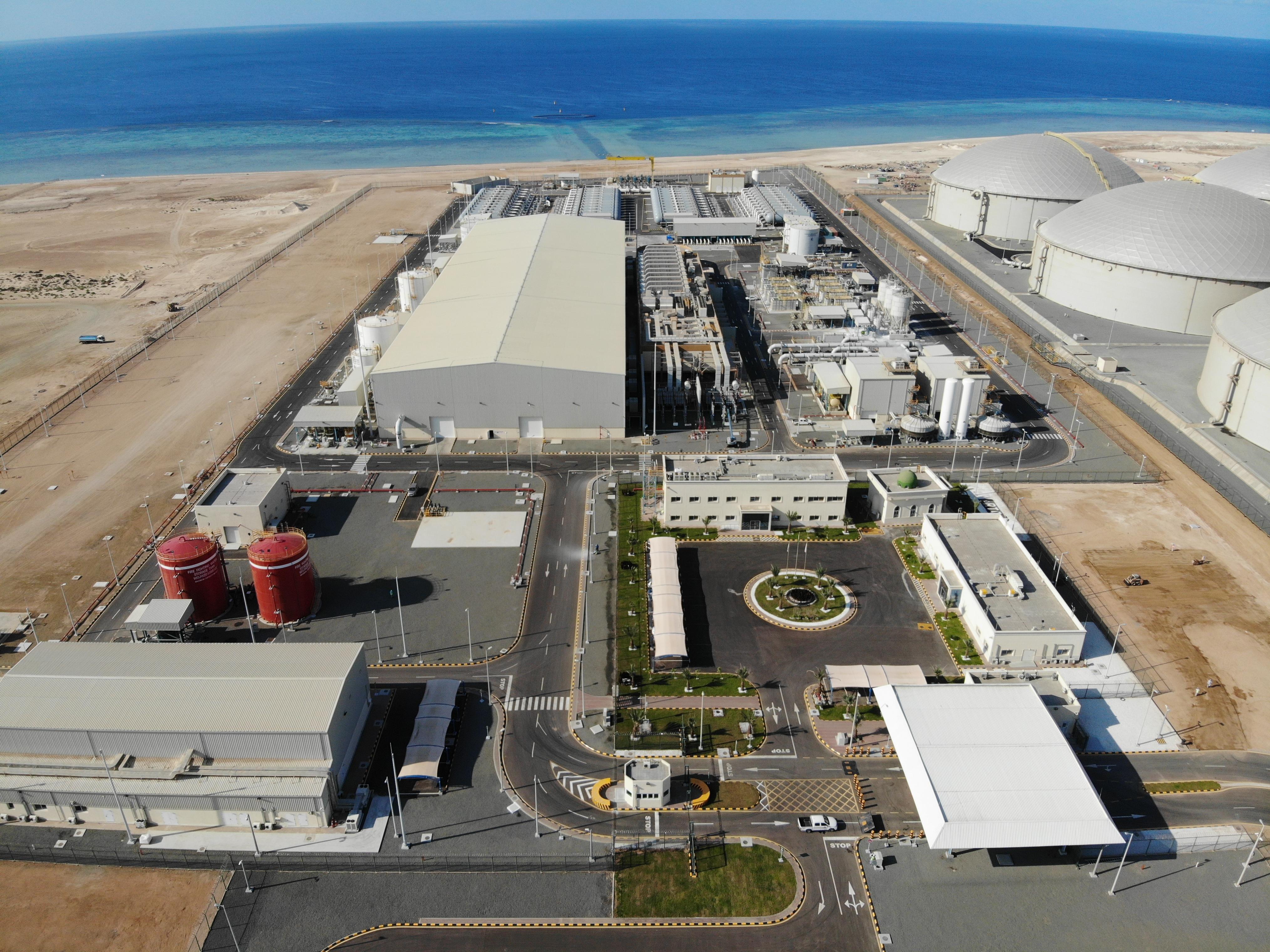
 0 Comment(s)
0 Comment(s) Print
Print E-mail China.org.cn, July 17, 2024
E-mail China.org.cn, July 17, 2024
This year marks the 20th anniversary of the China-Arab States Cooperation Forum and the 20th year since the Power Construction Corporation of China (PowerChina) entered the Middle Eastern market. Over these two decades, PowerChina has made significant contributions to the construction and development of Arab countries, establishing irreplaceable advantages in the region.
The Middle East and North Africa face severe water scarcity, making seawater desalination a critical sustainable development path that has garnered widespread attention. PowerChina has employed the world's most advanced reverse osmosis seawater desalination technology for the Rabigh Phase III seawater desalination plant in Saudi Arabia.

Rabigh Phase III seawater desalination plant in Saudi Arabia [Photo provided to China.org.cn]
With a daily water output of 600,000 tons, a Guinness World Record, the plant provides water for 2.4 million residents. The project marks the first entry of a Chinese enterprise into the large-scale seawater desalination EPC (Engineering, Procurement, Construction) general contracting market in the Middle East.
Building on its success, PowerChina has further explored seawater desalination by establishing research centers, training professionals, and creating an EPCO (Engineering, Procurement, Construction, and Operation) industrial chain. Today, it has become the world's largest EPC general contractor in seawater desalination.
PowerChina has also integrated seawater desalination technology with new energy sources in its seawater desalination projects, replacing part of the traditional power supply with photovoltaic energy to reduce costs and improve efficiency. For example, in projects implemented in the UAE and other locations, PowerChina adopted models such as "seawater desalination + photovoltaics" and "seawater desalination + photovoltaics + water storage," aligning with the green development trend.
Since entering the Middle Eastern market in 2004, PowerChina has been committed to supporting the region's transition to clean, low-carbon energy. It has undertaken several landmark new energy projects, including the 800 MW Al Kharsaah photovoltaic project in Qatar and the 500 MW Ibri photovoltaic project in Oman. In Saudi Arabia, PowerChina has undertaken the construction of the Red Sea New City project, which aims to create a "new energy city" involving multiple modules, including photovoltaics, energy storage, power grids, seawater desalination, water supply networks, and wastewater treatment. This large-scale use of "photovoltaic + energy storage" to supply energy to a city of millions is unprecedented globally and significantly promotes local industrial transformation.
To meet the high standards of the Middle Eastern market, PowerChina continuously strengthens its business capabilities, advances environmental protection, and achieves diversified development. Today, PowerChina offers a full range of its services to 20 of the 22 Middle Eastern countries. Its power projects in the Middle East and North Africa have benefited approximately 415 million people, solidifying PowerChina as the largest engineering contractor in the Middle East market.
PowerChina's development journey in the Middle East reflects how Chinese enterprises, embracing reform and opening up, have steadfastly "gone global," integrating into local contexts with an open mindset. It also demonstrates the Chinese economy's strong resilience, as it continues to achieve growth while boosting regional development. Against the backdrop of continued deepening reform and opening up, PowerChina will adhere to the principles of openness, cooperation, and mutual benefit.
Leveraging its integrated industrial chain advantages, it will participate in the high-quality China-Arab Belt and Road cooperation, bringing more benefits to the Arab people.